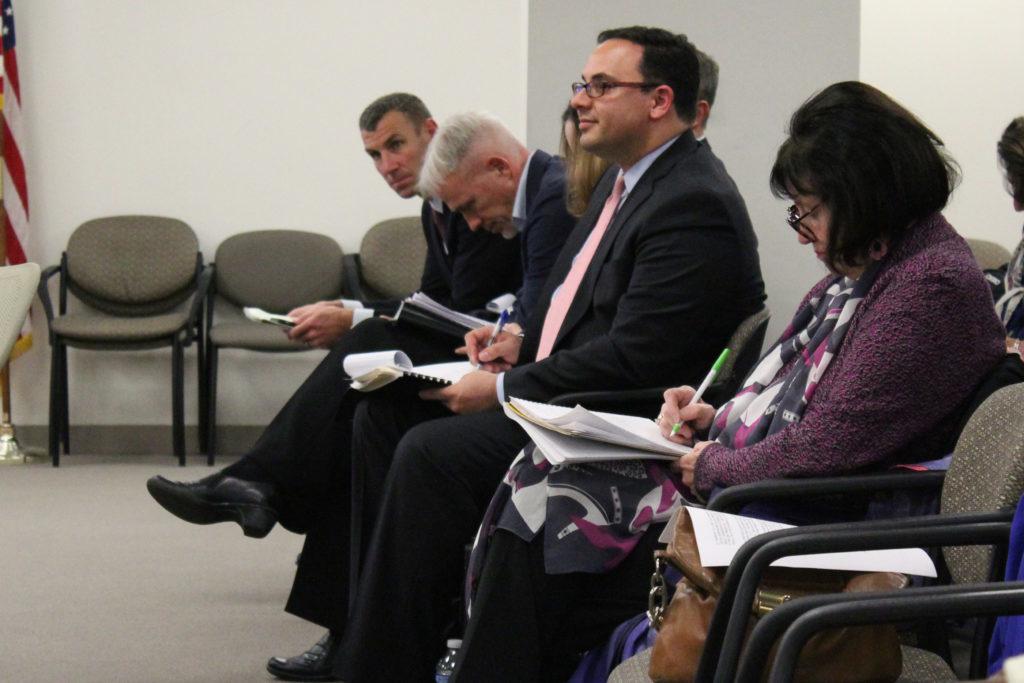Updated: Oct. 13, 2017 at 7:38 p.m.
Property developers received overwhelming support from local community members, GW officials and students at a meeting Thursday to gain community input on the proposed redevelopment of 2100 Pennsylvania Ave.
The D.C. Zoning Commission held a public hearing where representatives from Boston Properties, the law firm Goulson&Storrs, and Pelli Clarke Pelli Architects presented a proposal on the planned design of the building that will combine Rice Hall and 2100 Pennsylvania Ave. into one retail and commercial investment property. The representatives also introduced to the commission the proposed $700,000 in community benefits, including funding for park and transportation improvements.
Although no decision was made Thursday, the commission announced that there will be further discussion about proposed zoning changes needed for the building’s design at a meeting Nov. 27.
Officials, especially members of the community, praised the proposal at the meeting. Patrick Kennedy, the Foggy Bottom and West End Advisory Neighborhood Commission chairman said the zoning commission would likely approve the proposal. The ANC previously voted 6–0 in favor of development, he said during the meeting.
“The level of neighborhood engagement was very strong,” he said in an interview. “I think based on Boston Properties’ track record with retail development and some of their other projects, we’re confident that it will be able to bring some attractive tenants to that area.”
Alicia Knight, the senior associate vice president for operations at the University, said at the meeting that the new property would prove to be an invaluable source of income for GW.
“The University has a practice of utilizing our investment real estate to generate revenue to support our academic mission,” she said.
GW also partnered with Boston Properties to construct The Avenue in 2011, a big revenue generator for the University that includes apartments and retail stores like Whole Foods, Sweetgreen and Roti.
The West End Citizens Association, although critical of the proposed plan, supported the building’s development as long as building developers aim to fund Metro improvements.
Boston Properties proposed to give $80,000 to fund a study examining possible improvements to the Foggy Bottom Metro Station and to install “pedestrian improvements” at the intersection 22nd and I Street. The plan does not say what those improvements would include.
A group of students from Campaign GW, an organization affialted with GW’s sustainability office, attended the meeting and said they were impressed by the proposed development’s environmental benefits, citing the building’s planned LEED certification, rainwater recycling initiative and solar panels.
Sophomore Meredith Liu said the project would influence the surrounding community to adopt additional sustainablilty initiatives and policies.
“When an institution like GW takes the first steps towards a sustainable future, it increases incentives for other institutions,” she said. “This project will not only make our own Foggy Bottom community more sustainable, but it will also take the lead for other sustainablity initiatives in other communities.”
Sophomore Colin O’Brien said the the development would improve the already bustling area around I Street, attracting people from across the District to Foggy Bottom.
“Adding this new development will really extend that I Street corridor, attracting people from across the District, as well as bringing out more students to the area who already live on campus and getting them in contact with our community members who we have an increasingly better relationship with,” he said.





